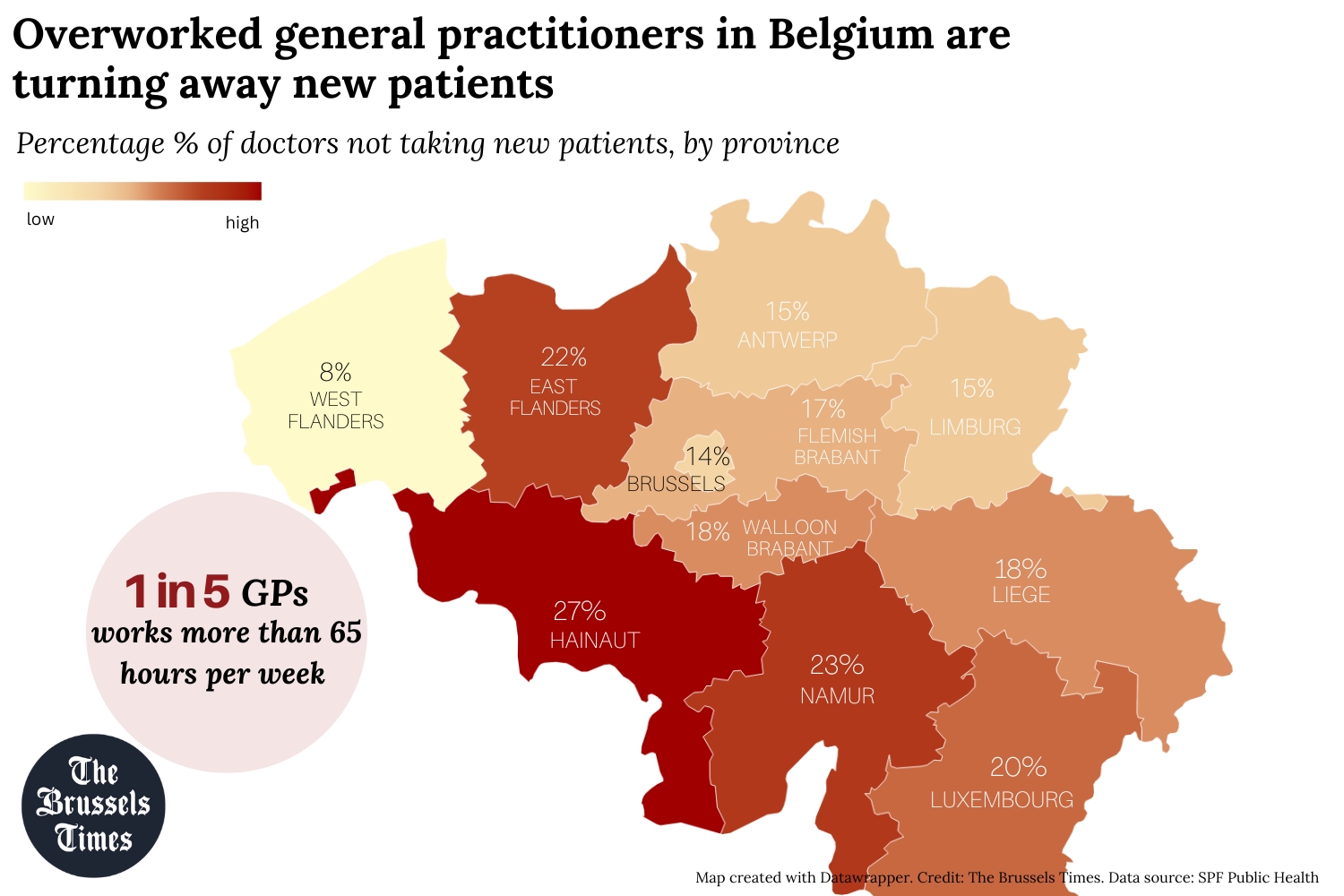General practitioners in Belgium have overpacked schedules with almost one in five having to turn away new patients, a new survey by the SPF Public Health shows. Only a quarter of family physicians in Belgium are accepting new patients unconditionally; 58% accept them with certain conditions, like living in a specific area or being related to an existing patient.
Half of GPs said they work between 50 and 64 hours per week and 17% work more than 64 hours in a week.
The workload of general practitioners has surged since the start of the COVID-19 pandemic and in the survey half of them anticipated that their workload will continue to increase over the next five years.
The number of GPs who are refusing new patients varies broadly around the country, with Wallonia and East Flanders having the highest percentages. Brussels is better off than most provinces, with 14% of GPs turning new patients away.
The survey had a representative sample of 3,000 respondents, from Belgium's 12,600 GPs.
A nearing wave of retirements
The strain on primary care providers is all the more important as 8% intend to retire soon. In Brussels, the number of general doctors who will soon enter retirement is the highest, at 11%.
Over half (54%) of all GPs in Belgium are 55 years or older, found the 2021 census of healthcare staff. Nearly one-third are older than 65. Incoming young doctors tend to prioritize a balanced workload more than the older generation, so the gap will not easily be filled in by recent graduates, the SPF Public Health report said. Older general doctors are most likely to work more than they would actually prefer.
The wave of imminent retirements is more pressing in the French-speaking Community, which has a quota system for medical graduates and sees around 300 general practitioners graduate every year. In 2021, Wallonia had 797 general practitioners in training, while Flanders had 1,080, according to the numbers of the SPF Public Health. The Brussels Capital region had an additional 360 GPs in training.
New Deal or no deal?
Last year, the Belgian Health Minister proposed a plan to fix the problems in the primary care sector. "We need a New Deal for GPs that is not just about how we can better support GPs, including working with other care providers or care support functions, but also looks at how their funding model can better take into account availability, collaboration, prevention and empowerment," Minister Frank Vandenbroucke said at the time.
The Belgian Association of Medical Unions (Absym) has expressed discontent with the "New Deal", demanding significant changes, like the lowering of the imposed minimum of 1,000 patients per GP.
Jan De Maeseneer, former general medicine professor at the University of Ghent, said that forcing GPs to take in more patients would be unfair.
"Introducing a compulsory work service would be violent towards general practitioners, and increasing the well-being of doctors has recently been declared as one of the five pillars for improving the health system," De Maeseneer said in a statement in January.
Related News
- Christian democrats finally open to a (slight) relaxation of Belgium's abortion law
- British nurses could strike until Christmas, union leader warns
- GPs increasingly interested in AI, UMons survey shows
More recently, GPs have been angered by a measure proposed by Minister Vandenbroucke, which would require them to work more hours at night and during the weekend. On Monday, general practitioners said they are prepared to go on strike in protest of the measure, according to RTL.


